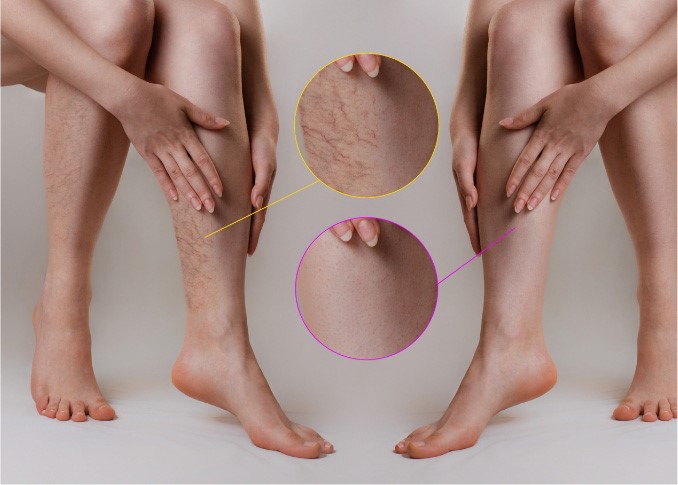When it comes to maintaining optimal vein health, understanding the roles and titles of the professionals who manage these conditions is crucial. The term ” what is a vein doctor called” might be commonly used, but it’s essential to know the specific types of specialists who handle vein-related issues. This comprehensive guide explores what a vein doctor is called, delving into the various titles and specialties within this field.
What Types of Specialists Focus on Vein Health?
Vein health encompasses a range of conditions and treatments, leading to several types of specialists who play crucial roles in diagnosis and management. Here are the primary types of vein doctors:
1. Vascular Surgeons
Vascular surgeons are medical professionals specializing in the surgical treatment of blood vessel disorders. Their expertise includes conditions affecting arteries, veins, and lymphatic systems. These surgeons are highly trained to perform complex procedures such as vein stripping, sclerotherapy, and endovenous laser therapy.
Key Responsibilities:
- Perform surgical interventions on veins and arteries.
- Treat conditions such as deep vein thrombosis (DVT), varicose veins, and chronic venous insufficiency.
- Use advanced techniques and technology to improve vein function and alleviate symptoms.
2. Phlebologists
Phlebologists are specialists focused specifically on vein disorders. The term “phlebology” comes from “phlebos,” the Greek word for vein. Phlebologists diagnose and treat conditions primarily related to veins, including varicose veins, spider veins, and other venous diseases.
Key Responsibilities:
- Conduct comprehensive evaluations of vein health.
- Perform non-surgical treatments such as sclerotherapy and laser treatments.
- Provide preventive care and management for chronic vein conditions.
3. Interventional Radiologists
Interventional radiologists are doctors who use imaging technology to guide minimally invasive procedures. They often treat vein conditions using techniques such as catheter-based procedures and embolization. This specialty combines radiology with procedural expertise to address various venous disorders.
Key Responsibilities:
- Use imaging techniques (ultrasound, CT, MRI) to guide procedures.
- Perform minimally invasive procedures to treat vein issues.
- Manage conditions such as varicose veins and DVT with precision-guided techniques.
4. Dermatologists
Dermatologists are experts in skin conditions, including those affecting the veins. While their primary focus is on skin health, they often deal with cosmetic and medical aspects of vein issues like spider veins, which are visible on the skin’s surface.
Key Responsibilities:
- Diagnose and treat superficial vein conditions, such as spider veins.
- Offer cosmetic treatments to improve skin appearance.
- Collaborate with other specialists for comprehensive care of vein-related conditions.
5. Cardiologists
Cardiologists are specialists in heart and circulatory system health. While they primarily focus on the heart, they also manage conditions affecting the veins, especially those that intersect with cardiac health, such as deep vein thrombosis and pulmonary embolism.
Key Responsibilities:
- Diagnose and treat vein-related conditions linked to cardiac health.
- Provide care for patients with cardiovascular issues affecting veins.
- Collaborate with vascular specialists for integrated treatment approaches.
How to Choose the Right Specialist for Vein Health
Selecting the appropriate specialist for vein health depends on the specific condition and the type of treatment required. Here’s how to make an informed choice:
1. Evaluate the Specific Condition
Determine the nature of the vein problem. For complex surgical treatments, a vascular surgeon might be the best choice. For cosmetic issues or minor treatments, a phlebologist or dermatologist may be more suitable.
2. Consider the Required Procedure
If a minimally invasive procedure is needed, an interventional radiologist might be the ideal specialist. For non-surgical treatments like sclerotherapy, a phlebologist or dermatologist would be appropriate.
3. Review the Specialist’s Experience
Look for a specialist with experience and a proven track record in treating your specific vein condition. Verify their qualifications, certifications, and patient reviews.
4. Check for Multidisciplinary Approaches
In some cases, a combination of specialists might be required. For instance, a cardiologist might work alongside a vascular surgeon or phlebologist to manage complex vein conditions that impact heart health.
What Treatments Can Vein Doctors Provide?
Vein doctors offer a range of treatments depending on their specialty and the condition being addressed. Here’s an overview of common treatments:
1. Sclerotherapy
Sclerotherapy involves injecting a solution into the affected veins, causing them to collapse and fade from view. It’s commonly used for spider veins and small varicose veins.
2. Endovenous Laser Therapy (EVLT)
EVLT is a minimally invasive procedure that uses laser energy to close off problematic veins. It’s effective for treating larger varicose veins with minimal recovery time.
3. Vein Stripping
Vein stripping is a surgical procedure where a damaged vein is removed through small incisions. It’s typically used for severe varicose veins and involves a recovery period.
4. Catheter-Based Procedures
Catheter-based procedures guided by interventional radiologists involve inserting a catheter into the vein to perform treatments such as thermal ablation or embolization.
5. Cosmetic Treatments
Cosmetic treatments, often performed by dermatologists or phlebologists, focus on improving the appearance of veins through techniques like laser therapy or microphlebectomy.
How Do Vein Doctors Contribute to Overall Health?
Vein doctors play a vital role in managing and improving overall health. By addressing vein-related conditions, they help prevent complications such as:
- Chronic Venous Insufficiency: Untreated vein issues can lead to chronic pain and swelling, impacting daily activities.
- Deep Vein Thrombosis (DVT): Proper treatment can prevent serious complications like pulmonary embolism.
- Cosmetic Concerns: Addressing cosmetic vein issues can improve self-esteem and quality of life.
Conclusion
Understanding what a vein doctor is called and the various specialists involved in vein health helps patients make informed decisions about their care. Whether you need a vascular surgeon, phlebologist, interventional radiologist, dermatologist, or cardiologist, each specialist plays a crucial role in managing and treating vein conditions. By recognizing the specific expertise of these professionals, you can ensure you receive the appropriate treatment for optimal vein health.

